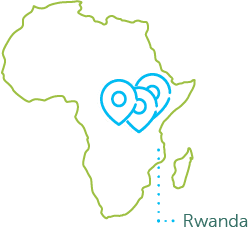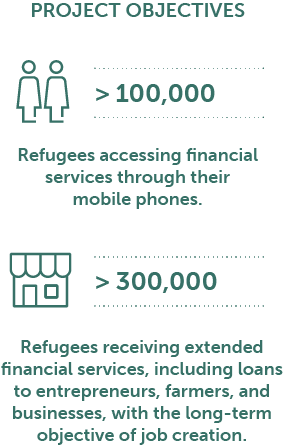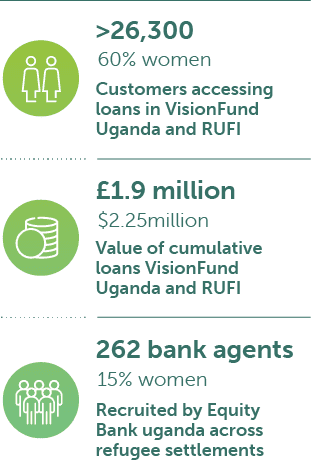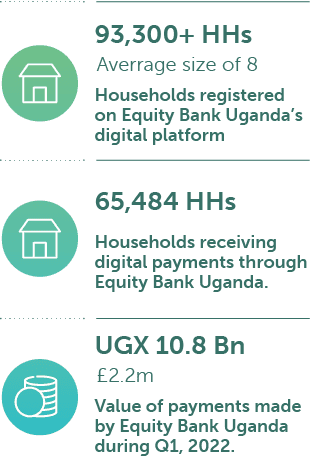
FI4R
THE FINANCIAL INCLUSION
FOR REFUGEES PROJECT (FI4R) PROJECT SUPPORTS
FINANCIAL SERVICE PROVIDERS TO OFFER FINANCIAL SERVICES TO REFUGEES AND HOST COMMUNITIES.


KEY ACHIEVEMENTS



Many FDPs face significant challenges, particularly in accessing financial services.
When refugees and other forcibly displaced people (FDPs) leave their countries, they not only lose their documents and identity, but also lose their financial freedom. According to the United Nations High Commission on Refugees (UNHCR), by the end of 2022, the Eastern region of Africa hosted 4.9 million refugees and asylum-seekers and 10.7 million internally displaced people (IDPs).
MEETING THE FINANCIAL NEEDS OF FDPs
Many FDPs face significant challenges, particularly in accessing financial services. Insufficient documentation, a lack of financial history, and unreliable income sources contribute to the perceived risks by financial institutions. Yet, the FDPs earn the same as the host community bank account holders. To address this, FSD Africa in partnership with FSD Uganda and Access to Finance Rwanda in collaboration with BFA Global in 2019 moved to develop market-based solutions to the financial needs of FDPs and the communities they live in through the Financial Inclusion for Refugees (FI4R) project.
THE FI4R PROJECT IN UGANDA
The project has achieved great milestones in Uganda, where three FSPs, Equity Bank Uganda Limited (EBUL), Vision Fund Uganda (VFU) and Rural Finance Initiative (RUFI), was supported to offer financial services to refugees and host communities.
The project further set out to monitor the financial flows among refugee households in Kampala and the camps of Nakivale, Bidi Bidi and Palorinya in the West Nile region using BFA Global’s financial diaries methodology. The initial survey of the refugees revealed a marginalised group with fragile livelihoods, making it challenging to sustain savings. They feared for the security of their savings in mobile wallets due to the risk of government enforced SIM card shutdowns. Additionally, strict government policies at the time prohibited using refugees’ IDs to open bank or mobile money accounts. Consequently, most refugees opted to store money at home, primarily for emergencies, especially health-related ones.
Significant progress has been achieved in improving identification and fostering financial trust, with nearly all refugees now possessing some form of ID. This facilitates their freedom of movement, simplifies employment applications, and grants access to financial services. Under the updated regulations, more than 600,000 refugees lacking government-issued refugee IDs but holding attestation letters from the Office of the Prime Minister can now legally access mobile-enabled services in their own names.

Income among FDPs in Ugandan refugee camps has risen, with the end-of-project survey revealing an average of three income sources per individual. Economic activities include self-employment, non-employment income (grants), casual employment, agricultural income, and rental income. Using mobile wallets and accessing money through agency banking has enabled FDPs to multiply their earnings, providing a better
lifestyle than before.
Refugees are utilising Accumulating Saving & Credit Associations (ASCAs), with enrollment increasing from 35% at the project’s start to 46% at its conclusion.
“In March 2020, I managed to buy myself a brand-new motorcycle to help me in my business and I also managed to build a better house for my family. Those were my dreams ever since I settled in Uganda and I managed to achieve them through regular saving in the group, minimising household expenditure and good decision making by me and my wife.”
Refugee
